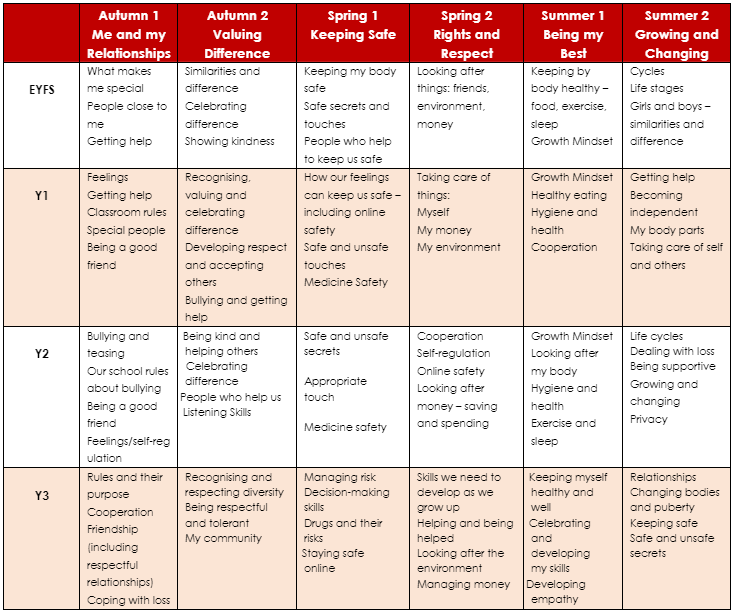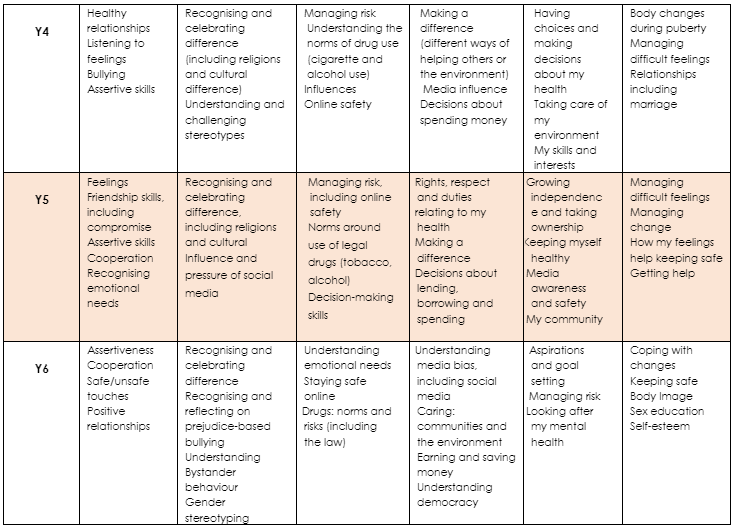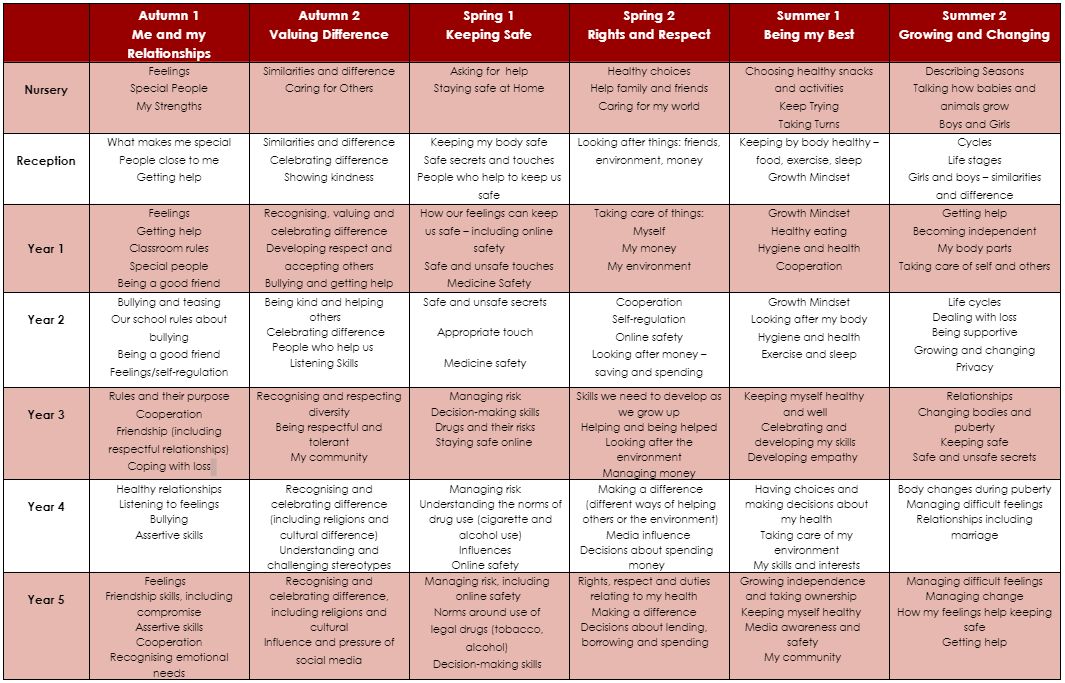Curriculum Overview
Rationale
At Fern Hill school, we use SCARF which is a comprehensive scheme of work for PSHE and Wellbeing education. It covers all the Department for Education statutory requirements for Relationships Education and Health Education, including non-statutory Sex Education, and the PSHE Association’s Programme of Study’s recommended learning opportunities, as well as contributing to different subject areas in the National Curriculum.
We follow the six suggested half-term units and adapt the scheme of work where necessary to meet the local circumstances of our school, for example, we may use our local environment as the starting point for aspects of our work.
Our PSHE subject lead works in conjunction with teaching staff in each year group and the phase leads (EYFS, KS1 and KS2) and is responsible for ensuring that all staff are equipped with the knowledge, skills and resources to deliver PSHE education confidently. Teachers can access a range of teaching support resources within SCARF, including guidance documents and teacher training films.
How PSHE education is monitored, evaluated and assessed
We have chosen SCARF as our PSHE resource because the lessons build upon children’s prior learning; we have assessed the content and feel that it is relevant and sensitive to the needs of the children. There is planned progression across the SCARF scheme of work, so that children are increasingly and appropriately challenged as they move up through the school.
For each of the six units, we carry out a specially designed pre- and post-unit assessment activity. Conducted twice, first at the beginning of the unit to determine where the children are at; and then again at the end of the unit, enabling us to monitor progress, record key points and identify areas for further development. This allows both teacher and child to see what progress has been made over the course of each half-term unit of lesson plans. At the end of a unit we consider a range of ‘I can' statements, which summarise children’s learning against the unit's key learning outcomes.
Each class also completes a learning journal once a week which evidences what was discussed during the lesson and an example of any work completed. In KS1 this is completed by the class teacher and in KS2 this is completed by the children.
PSHE Curriculum Intent: what is taught and when
The Early Years Foundation Stage
In the Early Years Foundation Stage, PSHE education is about making connections; it’s strongly linked to child-led activities, including play. PSHE is taught through activities that are part of topics, as well as on an individual basis to develop personal skills such as dressing, feeding and toileting. Positive experiences are built through daily opportunities, to share and enjoy a range of different activities. Children are given the opportunity to engage in social activities, as members of a small group or occasionally during whole-school activities.
Key Stage 1 and Key Stage 2
The SCARF programme divides the year into 6 themed units:
1. Me and My Relationships: includes content on feelings, emotions, conflict resolution and friendships;
2. Valuing Difference: a focus on respectful relationships and British values;
3. Keeping Myself Safe: looking at keeping ourselves healthy and safe
4. Rights and Responsibilities: learning about money, living the wider world and the environment;
5. Being My Best: developing skills in keeping healthy, developing a growth mindset (resilience), goal-setting and achievement;
6. Growing and Changing: finding out about the human body, the changes that take place from birth to old age and being safe.
Children are encouraged to engage in activities that promote an understanding of themselves as growing and changing individuals, and as members of a wider community, based on their own first-hand experiences. These activities also encourage pupils to understand how their choices and behaviours can affect others. They are encouraged to play and learn alongside – then collaboratively with – their peers. They may use their personal and social skills to develop or extend these activities. Children are also given the opportunity to make choices about their health and environment and are encouraged to develop a caring attitude towards others.
Within National Curriculum Science in Year 2, the children learn that animals, including humans, have offspring that grow into adults. They should be introduced to the concepts of reproduction and growth, but not how reproduction occurs. In Year 5, children are taught about the life cycles of humans and animals, including reproduction. They also learn about the changes that happen in humans from birth to old age. This includes learning what happens in puberty.
It is important that the transition phase before moving to secondary school supports pupils’ ongoing emotional and physical development effectively. The Department for Education recommends that all primary schools should have a sex education programme, tailored to the age and the physical and emotional maturity of the pupils. Within our non-statutory sex education that takes place in Year 6 children will learn about how a baby is conceived, whether through sexual intercourse or IVF. This information builds on content they have previously learnt in the programme about relationships, puberty changes and reproduction; it lays the foundations for their ongoing Relationships and Sex Education in their secondary phase.
Fern Hill PSHE Whole School Overview (SCARF)







 Inspiration
Inspiration 